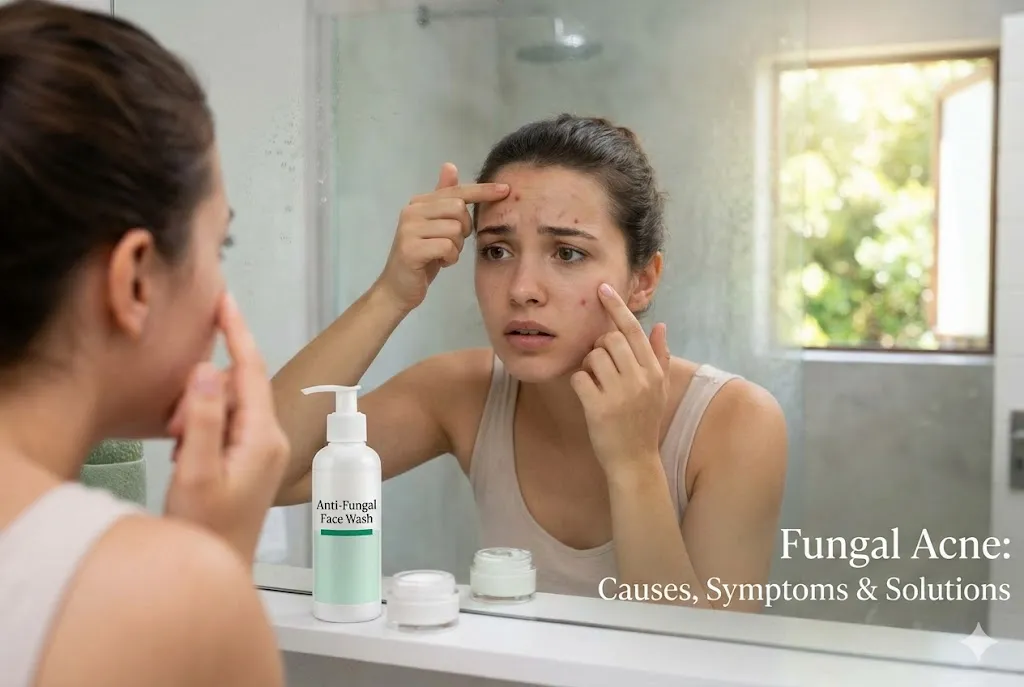Imagine it’s a sunny weekend, and you're planning a family picnic. You've got everything packed—sandwiches, blankets, and games. But what about sun protection? Many people reach for sunscreen without giving it much thought.
However, traditional sunscreens can contain harmful chemicals that might not be safe for everyone, especially sensitive skin types. So, what's the solution? The best natural sunscreen options offer a safe and effective alternative without any harsh chemicals.
Did you know that conventional sunscreens contain potentially harmful ingredients, like oxybenzone, linked to skin irritation? That’s why many are switching to the best natural sunscreen available. Let’s explore why natural sunblocks are worth considering and discover some of the top choices.
5 Best Natural Sunscreens For Optimum Skin Protection
When choosing a natural sunscreen, quality matters. Here are some top-rated options available in the U.S., known for their effectiveness, skin compatibility, and eco-friendliness.
1. Badger SPF 30 Unscented Sunscreen Cream
An organic option packed with antioxidants and essential oils, ideal for all skin types.
-
Benefits:
-
Contains zinc oxide for broad-spectrum protection.
-
Certified organic with minimal ingredients.
-
Water-resistant up to 40 minutes.
-
Price: $17
2. Blue Lizard Sensitive Mineral Sunscreen SPF 30
Formulated specifically for sensitive skin, it’s free from fragrances and harsh chemicals.
-
Benefits:
-
No chemical UV blockers.
-
Dermatologist-recommended for sensitive skin.
-
Water-resistant for up to 80 minutes.
-
Price: $15
3. ThinkSport Safe Sunscreen SPF 50+
With a high SPF and a non-greasy feel, ThinkSport is a top pick for sports and outdoor activities.
-
Benefits:
-
High SPF for prolonged sun exposure.
-
Free from harmful ingredients like parabens.
-
Absorbs quickly without leaving residue.
-
Price: $22
4. All Good SPF 30 Sport Sunscreen Lotion
This sunscreen uses only non-nano zinc oxide and is ideal for sensitive skin.
-
Benefits:
-
Safe for coral reefs and ocean life.
-
Non-greasy, suitable for both face and body.
-
Lightweight and absorbs well.
-
Price: $18
5. Raw Elements Face + Body SPF 30
Known for its organic formula, Raw Elements Face + Body is both versatile and highly effective.
-
Benefits:
-
Contains natural antioxidants to protect against aging.
-
Reef-safe with eco-friendly packaging.
-
Non-irritating for sensitive skin.
-
Price: $16
Why Choose Natural Sunscreens?
If you're considering switching, it's probably because you want safer skin protection. Unlike chemical sunscreens, which absorb UV rays, natural sunblocks use minerals to form a protective barrier on your skin’s surface.
This difference not only minimizes the risk of skin reactions but also prevents these ingredients from seeping into your skin. With natural sunblock, you’re not just protecting yourself but also contributing to ocean-friendly solutions.
Key Ingredients in Natural Sunscreens
Natural sunscreens rely on active mineral ingredients that provide physical sun protection. These ingredients are gentle, eco-friendly, and proven to work effectively. Below are some key ingredients you’ll find in all-natural sunscreens:
-
Zinc Oxide: Offers broad-spectrum UV protection, known for its soothing effect on sensitive skin.
-
Titanium Dioxide: Lightweight and protects against both UVA and UVB rays, ideal for oily skin types.
-
Aloe Vera: Adds hydration and healing properties, perfect for calming sun-exposed skin.
-
Coconut Oil: Mild SPF benefits and locks in moisture.
-
Shea Butter: Acts as a natural barrier and adds extra nourishment for dry skin.
-
Green Tea Extract: Packed with antioxidants that help reduce inflammation.
-
Beeswax: Provides a protective coating, ideal for water-resistant formulas.
-
Jojoba Oil: Balances skin’s oil production and offers a lightweight protective layer.
8 Best Natural Sunscreen Alternatives in Nature
If you prefer using natural ingredients directly from your pantry, here are eight alternatives to traditional sunscreens. Each offers unique skin benefits and provides mild sun protection.
1. Coconut Oil
Not only does it moisturize, but it also provides a mild SPF of 4-5, making it ideal for short sun exposures.
-
Benefits:
-
Deeply hydrating, excellent for dry skin.
-
Contains natural antioxidants.
-
Easy to apply and lightweight.
2. Raspberry Seed Oil
Raspberry seed oil is estimated to have SPF between 28-50, making it one of the best natural sun protectants.
-
Benefits:
-
High SPF range, comparable to commercial sunscreens.
-
Rich in vitamin E for skin repair.
-
Lightweight and absorbs well.
3. Carrot Seed Oil
With SPF levels of around 35-40, carrot seed oil offers great protection.
-
Benefits:
-
Packed with antioxidants that fight skin damage.
-
Calms irritated or sensitive skin.
-
Contains anti-aging properties.
4. Shea Butter
This thick, natural butter provides minimal SPF (4-6) and is great as a moisturizing layer.
-
Benefits:
-
Helps form a barrier against UV rays.
-
Ideal for nourishing dry skin.
-
Soothes and calms post-sun skin.
5. Aloe Vera Gel
While it doesn’t provide high SPF, aloe vera is known for its soothing properties and can help reduce skin redness.
-
Benefits:
-
Cooling effect for irritated skin.
-
Excellent moisturizer for hot days.
-
Non-greasy, ideal as a base layer.
6. Jojoba Oil
Jojoba oil is close to your skin’s natural oils, making it a gentle option with mild SPF.
-
Benefits:
-
Non-comedogenic, won’t clog pores.
-
Balances skin’s natural oil production.
-
Lightweight and ideal for all skin types.
7. Avocado Oil
This oil has an SPF of about 15 and is highly nourishing, especially for dry skin.
-
Benefits:
-
Deeply hydrates and softens skin.
-
Contains antioxidants to prevent sun damage.
-
Suitable for sensitive skin.
8. Olive Oil
With low SPF, olive oil isn’t a strong sunblock, but it can add a layer of protection when needed.
-
Benefits:
-
Full of antioxidants that shield from skin aging.
-
Hydrates and nourishes skin.
-
Readily available and affordable.
How to Choose the Right All-Natural Sunscreen for Your Skin Type?
When selecting the perfect natural sunscreen, keep your skin type in mind. Here’s how to find the best match:
-
Oily Skin: Go for lightweight, non-greasy formulas with zinc oxide.
-
Dry Skin: Choose options with added moisturizers like aloe vera or shea butter.
-
Sensitive Skin: Opt for fragrance-free, hypoallergenic sunscreens.
-
Combination Skin: Look for balanced formulas with hydrating and oil-absorbing ingredients.
-
Mature Skin: Antioxidant-rich formulas with green tea or vitamin E are great for anti-aging.
-
Sun-Intensive Activities: Pick high-SPF and water-resistant options.
-
Eco-Conscious Choice: Select reef-safe, biodegradable options.
-
Daily Wear: For light protection, mineral-based sunscreens with SPF 15-30 work well.
Stay Safe, Stay Natural: Protect Your Skin Wisely
Switching to the best natural sunscreen options doesn’t mean compromising on protection. By choosing mineral-based sunscreens or nature’s own sun-protective oils, you’re taking a healthier approach to skincare. So, whether you’re at the beach or going on a hike, don’t forget your sun protection.
Ready to give nature a try? Consult a skincare expert to pick the best option for your skin.
Frequently Asked Questions
Is natural sunscreen effective?
Yes, when formulated correctly, natural sunscreens offer effective sun protection.
What SPF level is best for daily use?
For daily use, an SPF of 15-30 is usually sufficient.
Can I use oils as a sunscreen substitute?
Yes, some oils provide mild SPF but should be layered for stronger protection.
Are all-natural sunscreens safe for kids?
Yes, they’re often safer for sensitive skin, but check ingredients to ensure they’re child-friendly.
What’s the main ingredient in natural sunscreens?
Zinc oxide and titanium dioxide are the primary active ingredients in natural sunscreens.
Do natural sunscreens expire?
Yes, check the packaging for the expiration date to ensure effectiveness.

Reviewed by







